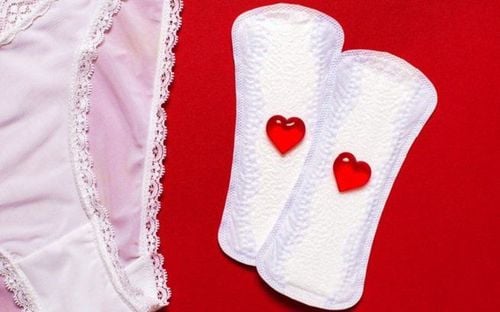This is an automatically translated article.
New research shows that antibiotics can reduce the effectiveness of birth control pills. So should a backup method of birth control (such as condoms) be used while you are taking antibiotics and a hormonal contraceptive?1. Will antibiotics affect the effectiveness of birth control pills?
For years, women have been advised that their birth control might become less effective if they also take a course of antibiotics at the same time. The usual advice from doctors is to add another form of birth control to birth control (such as a condom), and possibly for 7 days after finishing antibiotics, to help prevent pregnant.Today, most studies state that antibiotics, with the exception of the tuberculosis drug rifampicin (also known as Rifadin and Rimactane) and possibly other rifamycins such as rifabutin, do not change the effectiveness of the drugs. Hormonal form of birth control such as the pill. However, the scientists argue that many studies lack data on drug interactions and therefore are unlikely to detect occasional interactions.
In contrast, a large observational database study from BMJ Evidence-Based Medicine published in August 2020 found a possibility of pregnancy with a combination of birth control and antibiotics. However, this study could not demonstrate cause and effect based on the retrospective design and limitations of the study.
Because many current studies are conflicting, you should discuss this topic with your doctor if you are prescribed antibiotics while you are using a form of hormonal birth control.

Nhiều nghiên cứu mới cho thấy thuốc kháng sinh có thể làm giảm hiệu quả của thuốc tránh thai.
2. Current studies on the effect of antibiotics on oral contraceptives
According to Dr. Mitchell Kramer, of Northwell Health's Huntington Hospital in Huntington, New York, some antibiotics will affect the metabolism of contraceptive hormones. Therefore, they recommend that patients who are taking oral contraceptives use additional methods of contraception, such as condoms or spermicides, for the duration of the antibiotic period as a precaution. . In August 2020, researchers from the United Kingdom published an observational study in the BMJ Journal of Evidence-Based Medicine, arguing that previous studies on interactions between antibiotics and oral contraceptives pregnancy has yielded mixed results. To clarify, Ferner and his team followed up on reports of adverse drug events that were reported by healthcare professionals and patients to the UK's Medicines and Medical Devices Regulatory Authority. Older brother. Specifically, they compared the number of unintended pregnancies to about 75,000 adverse events for antibiotics in general, about 33,000 for enzyme inducers, and more than 65,500 other drugs. There were 46 unintended pregnancies in antibiotic adverse drug reports (incidence 62 per 100,000), 39 in enzyme inducer reports (119 per 100,000), and 6 in reports on other drugs. The researchers found that people taking antibiotics were seven times more likely to have an unwanted pregnancy than other unrelated drugs. Unintended pregnancies were also 13 times more common in reports of enzyme inducers, including some antibiotics. The researchers emphasize that calculating absolute risk from the data is not possible, and that risk exposure will vary from woman to woman, depending on her circumstances and psychophysiological status. However, most agree that if a woman is using hormonal contraceptives and an antibiotic, she should take extra precautions when taking a short course of an oral contraceptive. bacteria.
Nên dùng thêm một biện pháp tránh thai khác nếu đang dùng thuốc kháng sinh đồng thời với thuốc ngừa thai nội tiết tố

Hầu hết phụ nữ không bị giảm hiệu quả tránh thai khi sử dụng đồng thời các biện pháp tránh thai nội tiết và kháng sinh (ngoại trừ rifamycins)
If you have a need for consultation and examination at Vinmec Hospitals under the national health system, please book an appointment on the website for service.
Please dial HOTLINE for more information or register for an appointment HERE. Download MyVinmec app to make appointments faster and to manage your bookings easily.













